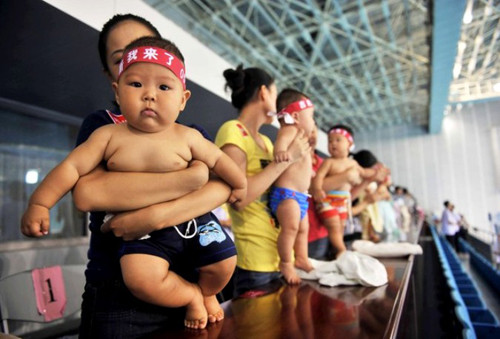Having a second child, Chinese couples rush to use in vitro fertilization
After China announced the abolition of its one-child policy, hospitals and fertility centers became overloaded as many couples came to conceive to have a second child.
According to FoxnewsIn early 2016, China officially ended its one-child policy. Every married couple has the right to have a second child.This policy change has increased the demand for fertility treatment among older women, putting heavy pressure on clinics, especially those offering in vitro fertilization.
The one-child policy, introduced by the Chinese government in the late 1970s, allows most couples to have only one child. Officials say it has helped prevent China's population from growing by 400 million and contributed to economic growth.However, the one-child policy has led to many forced abortions and has also caused a severe gender imbalance due to male preference. It is estimated that by 2020, there will be 30 million more men than women in China of marriageable age.
In addition, China's population of 1.37 billion people is aging, and labor resources are becoming scarce.These problems caused the Chinese government to relax the one-child policy in 2013, but the effectiveness was not high, leading to its complete cancellation.
 |
China ends one-child policy. Photo: Chinanews. |
After the second-child policy took effect, China faced a crisis in maternity hospitals. Many couples rushed to get infertility treatment and in vitro fertilization in the hope of having another child."More and more women are coming to hospitals expressing their desire to have a second child," said Dr. Liu Jiaen, who runs a private hospital in Beijing.
Liu estimates that the number of women coming to the hospital for IVF has increased by 20 percent since the new policy was introduced. Previously, the hospital's average patient age was around 35, but now most are over 40, with many in their 50s."The chances of conceiving naturally for older women are very low, so they resort to artificial insemination. They really want to have another child as soon as possible," he said.Liuspeak.
Chen Yun, 39, is "waiting around" in the hospital to prepare for in vitro fertilization. She and her husband already have a 7-year-old son and the family is eager to have a second child."We are reaching our late reproductive years, it is difficult to conceive naturally because my husband has sperm problems, so we want to conceive through IVF," Chen said.
Chen hopes to give birth to a little brother or sister for her son."We both had siblings when we were young. I also want my son to have the experience of being an older brother so that he can be happier and more responsible," Chen said.
In the past two decades, in vitro fertilization has developed rapidly in China, where about 10% of couples need it to conceive. In 2014, about 700,000 women underwent IVF treatment. HFertility centers at famous medical facilities in Beijing and Shanghai as well as elsewhere are under pressure from overcrowding.
In addition, as the demand for children increases, China's sperm banks are also under great pressure. "N"The demand for sperm from many women, usually aged around 35 and above, has increased dramatically," said Zhang Xinzong, director of the Guangdong Sperm Bank in southern China.
According to VNE

